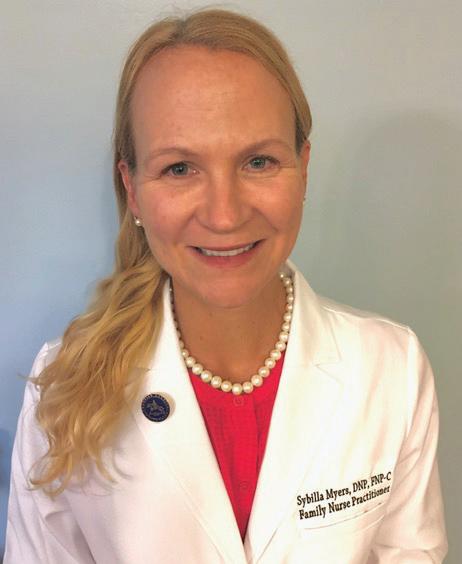
4 minute read
Goal 2 FNU Launches Community-Building Student Interest Groups
In June 2022, FNU launched five Student Interest Groups (SIGs) in response to students’ expressed desire to have a formalized way to connect with other students.
“I had meetings with students, and I was hearing from them the need to have groups of likeness – affinity groups,” said FNU Chief Diversity and Inclusion Officer Dr. Paula Alexander-Delpech, Ph.D., PMHNPBC, APRN. “I attended all the first sessions of these groups, and I came away so satisfied and so proud. The students who participated were very vocal as to what it is that is needed. For instance, the LGBTQIA+ students want to advocate for curriculum change.”
Advertisement
While more groups may be formed in the future, the five initial SIGs are:
• International Students in Nursing
• LGBTQIA+ Students in Nursing
• Men in Nursing
• Military/Veterans in Nursing
• Students of Color in Nursing
The meetings are held monthly and are facilitated by faculty, but students drive the goals and purposes of each SIG. The meetings are held online but are not recorded, and minutes are not taken, allowing for free, open, and brave conversations.
“The students drive all initiatives,” Dr. Alexander-Delpech said. “The SIGs all have different goals they want to achieve. For instance, one of the goals of the Men in Nursing SIG is to eventually have an FNU chapter in the
American Association of Men in Nursing. The International Student in Nursing group wants to have an international trip eventually.”
Dr. Joshua Faucett, DNP, MBA, FNP-BC, CNE, and Dr. Sybilla Myers, FNP, serve as the faculty advisors for the Veterans in Nursing SIG. An average of 15-25 students attend the Veteran SIG monthly meetings.
“The Veteran SIG provides an online home for our Veteran students and an opportunity to meet and discuss issues specific to Veterans and Veteran families,” Dr. Faucett said. “They are nearing completion of establishing an FNU Chapter of the Student Veterans of America, which is the premier organization leading service, research, programs, and advocacy for Veterans in higher education.”
Jason Bennett, ADN, RN, and current psychiatric-mental health nurse practitioner (PMHNP) student, is the student president of the Veteran SIG. He served as a U.S. Army Paratrooper from 1996-2001.
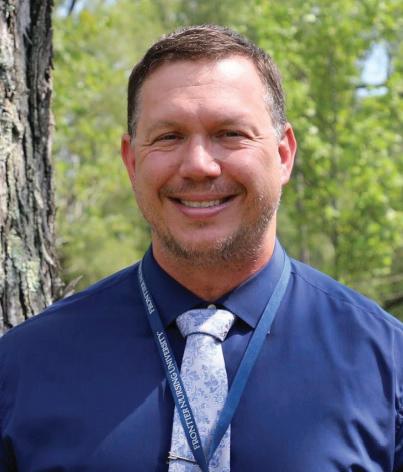
“As the Chapter President, I have the opportunity to work with our great advocates from the FNU Office of DEI and our passionately dedicated Faculty Advisors to help create an even better experience for my peers,” Bennett said. “In service to our great country, we all have unique experiences that have helped shape us into the people we are today. Having a space to share with fellow Veterans who are also confronting the challenges here at FNU is special, to be sure. The bonds that come from military service and the challenges that we face when this service ends are difficult to convey; the Veteran SIG provides an opportunity for fellowship each month. In addition to Veterans and family members of Veterans – the true unsung heroes and heroines – we welcome any member of the FNU community who wants to learn more about our culture.”
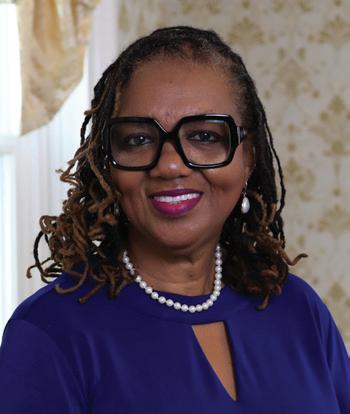
Each of the SIGs mirrors this structure of inclusivity, acceptance, and a safe space to connect with fellow students with similar backgrounds and interests. It is also a space for students to share ideas to improve everyone’s experience at FNU.
“The Students of Color interest group is more than just a group; it’s who we are,” said PMHNP student Jazmene Landing, BSN-RN, who serves as one of the group’s leaders. “We are nurses of color who embrace our differences and similarities. We are individuals who share our struggles and empower each other to be better. Often students of color feel as though it is our burden to explain ourselves, our culture, or our way of life to others, and that can take a toll both physically and mentally. However, to have a safe space and a group of like-minded beautiful people that can vent and be real and honest and sometimes share the ugly truths without fear of judgment, shame, or ridicule. It is a place to have those difficult conversations and to learn and grow.”
“I love being able to get encouragement and wisdom and have a good time with other students of color,” said fellow SOC SIG student leader and nurse-midwifery student Ebonique Shanks, RN, SNM. “I love being able to have real honest conversations without fear or worry of offending someone. I love being able to reach out to our professors and ask for professional help during clinical and getting guidance on how to professionally confront someone about racism.”
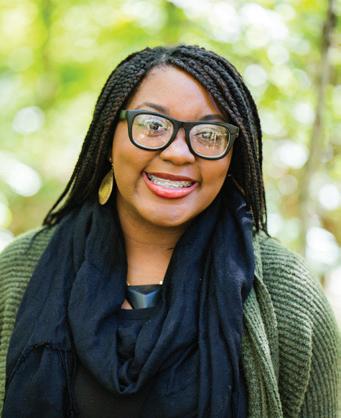
Sometimes those difficult conversations reveal pressing issues that require further action outside of the group. That is part of the role of the SIG faculty advisors.
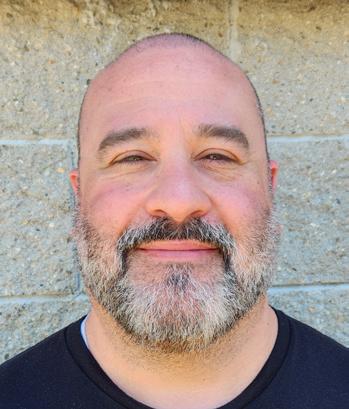
“One of the most important initiatives we have been working on is creating a process for students of color who experience racism within their clinical settings or during their didactic courses at Frontier,” said faculty advisor Dr. Dorsena Gayle, DNP, CNM. “We discuss coping methods and professional communication in the clinical setting when dealing with racism, prejudice, and bias. As one of the advisors, I am ‘on call’ for emergency debriefs and de-escalations for those students who experience those traumatic encounters.”
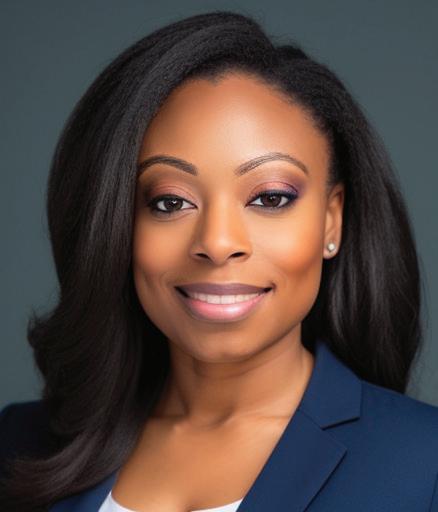
While the SIGs are still in their infancy, the impact that they are having on FNU’s students, both individually and collectively, has already been significant. The future plans are to see the growth of the current SIGs and the establishment of even more interest groups.
“My experience as a member and student leader in the Student of Color interest group has been amazing,” Landing said. “The lessons we learn and teach each other are invaluable. The mentorship from our faculty members and the diversity amongst our group is unmatched. We are not just a group of African American students, but we come from various parts of the world, and that’s what makes us so unique. Our commonality is being nurses of color, but what each individual member brings to the group is far more valuable. The life lessons, the experiences, and the conversations are what make us so unique and important to FNU.”








